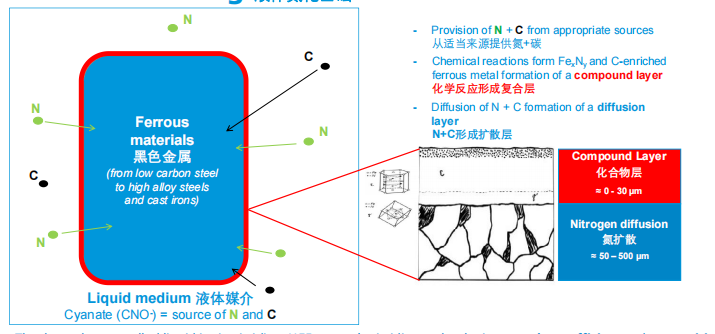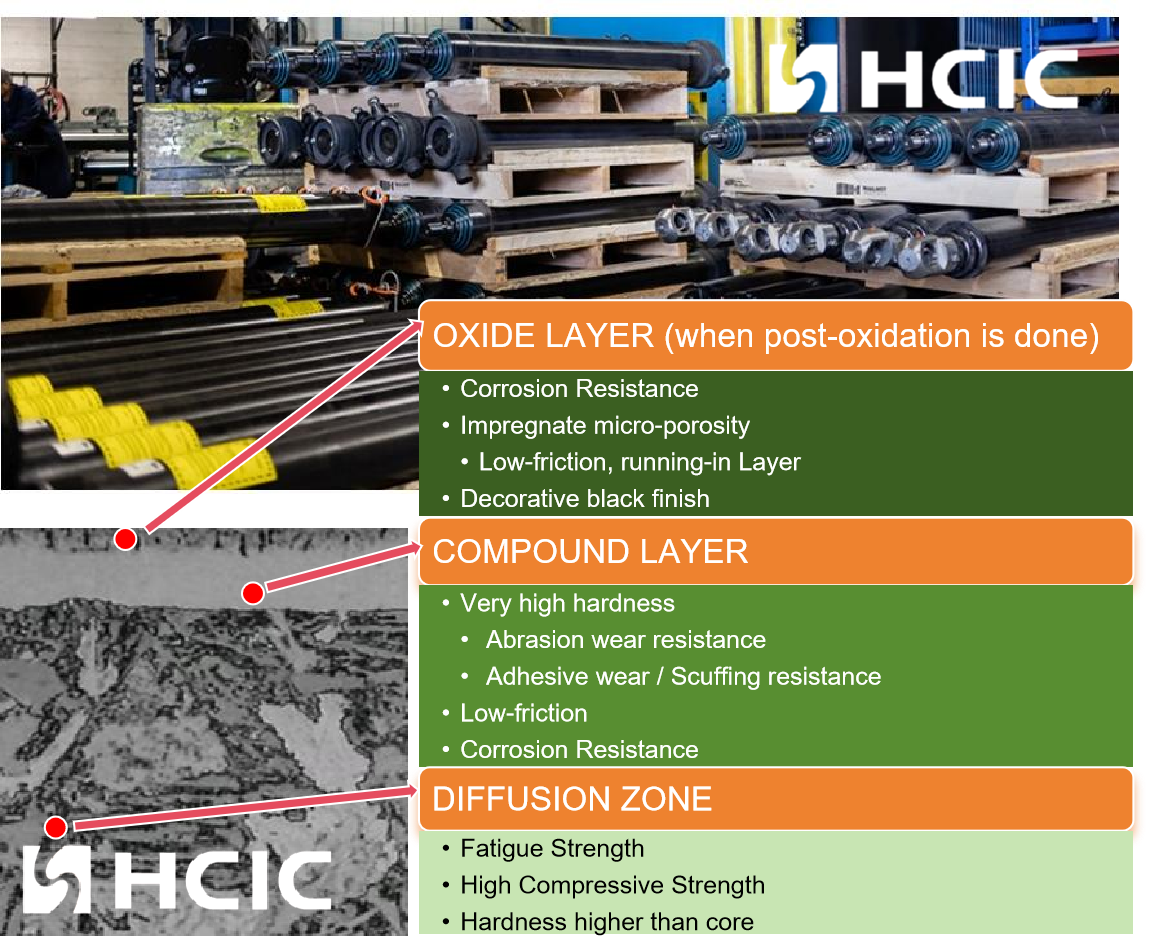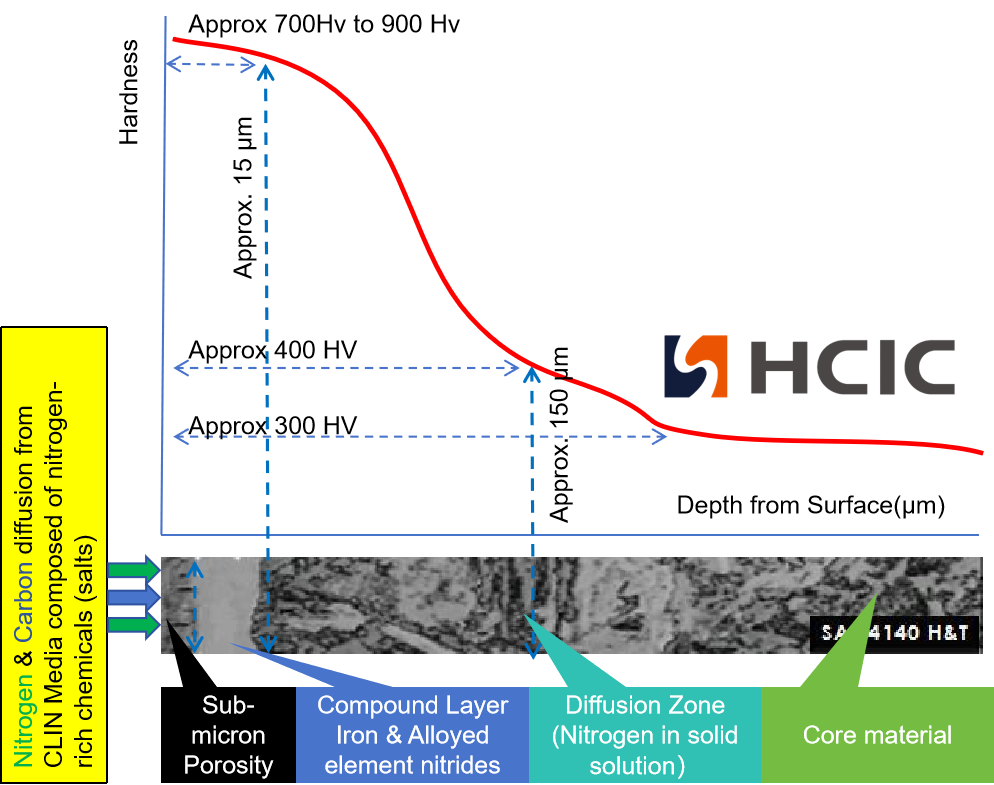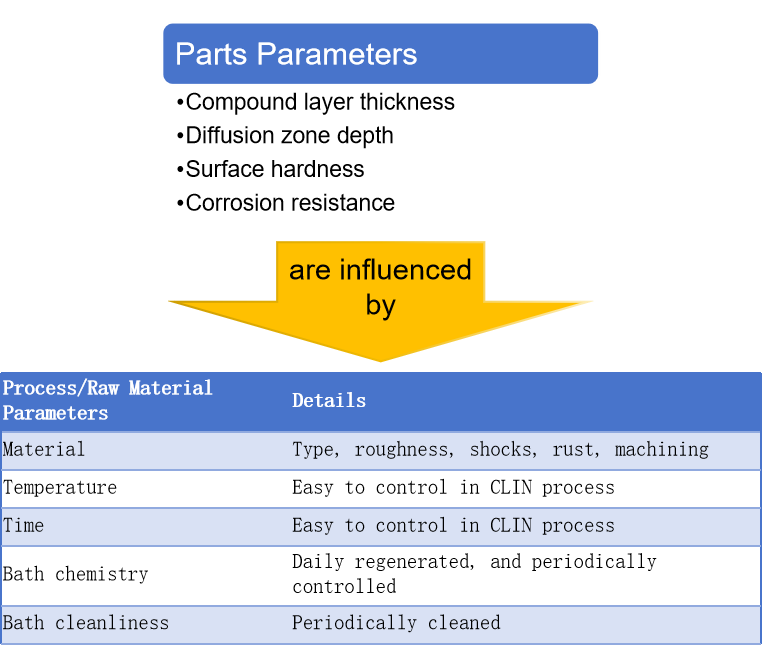In response to the EU's coming ban on chrome plating, hydraulic cylinder manufacturers are seeking innovative alternatives to ensure continued excellence in performance and durability. One such solution gaining widespread attention is Nitrocarburizing, also known as QPQ (Quench-Polish-Quench) technology. This process offers a transformative approach to surface treatment, delivering unmatched strength, corrosion resistance, and longevity to hydraulic cylinder components.
Comparing to the traditional surface tempering method, Nitrocarburizing(QPQ) and chrome plating are two different processes with distinct advantages and disadvantages, particularly concerning the properties of the resulting coating. Let's have a quick comparison.
1. Corrosion Resistance:
(1) Chrome Plating: Chrome plating offers excellent corrosion resistance, making it suitable for applications where exposure to harsh environments or corrosive substances is a concern.
(2) Nitrocarburizing: Nitrocarburizing also provides good corrosion resistance, especially in comparison to untreated metal surfaces. However, it may not offer the same level of corrosion resistance as chrome plating in all situations.
2. Hardness:
(1) Chrome Plating: Chrome plating can significantly increase the hardness of the substrate material, providing wear resistance and durability.
(2) Nitrocarburizing: Nitrocarburizing can also increase surface hardness, though typically not to the same extent as chrome plating. However, it can improve wear resistance and fatigue strength.
3. Thickness and Dimensional Changes:
(1) Chrome Plating: Chrome plating adds a layer of chromium to the substrate, which can result in dimensional changes, especially if precise tolerances are critical. Additionally, the thickness of the chrome layer can vary depending on the application.
(2) Nitrocarburizing: Nitrocarburizing typically forms a diffusion layer into the substrate material, resulting in minimal dimensional changes. The thickness of the nitrocarburized layer can be more uniform than chrome plating.
4. Environmental and Health Considerations:
(1) Chrome Plating: Chrome plating involves the use of hexavalent chromium, which is toxic and carcinogenic, posing environmental and health risks during production and disposal.
(2) Nitrocarburizing: Nitrocarburizing generally involves fewer environmental and health risks compared to chrome plating, as it does not use hexavalent chromium. However, the process may still involve the use of hazardous chemicals and requires proper handling and disposal practices.
But how does HCIC deal with cylinder using QPQ tech to have all the benefits without harming environment? Let’s get in to the full details.
1. What is Nitrocarburizing treatment?
Simply putting, Nitrocarburizing treatments are thermochemical treatments which enrich the surface of ferrous materials with Nitrogen & Carbon atoms. It is widely used for material hardening to increase corrosion resistance.
2. Basics of liquid nitrocarburizing
HEF Group is applying liquid ionic nitriding for nitrocarburizing, which is the key technology contributing to this robust, efficient and competitive solution.

3. Surface modifications
What happens to material surface after nitrocarburizing. You can see the difference of the layers in the following demonstration.


This process has greatly improved the surface performance in the wear resistance and corrosion test.
4. Key parameters to control
What are the most important parameters affecting the performance?
Here is a diagram displaying the most important factors and how to control them to get a better performance.

5. Surface properties enhancement
As the result, you will have a surface with features including
1) High wear resistance & low friction
2) High corrosion resistance
3) Seizure Protection
4) Absence of peeling & cracking
5) No need for re-machining
6) Aspects
In conclusion, with all these features and advantages in environmental friendly process, industries meeting challenging working conditions like tipping and garbage truck industries can have a better choice in cylinder manufacturing process and final performance. As a professional hydraulic solution provider, HCIC welcome you to enjoy new technology with us!